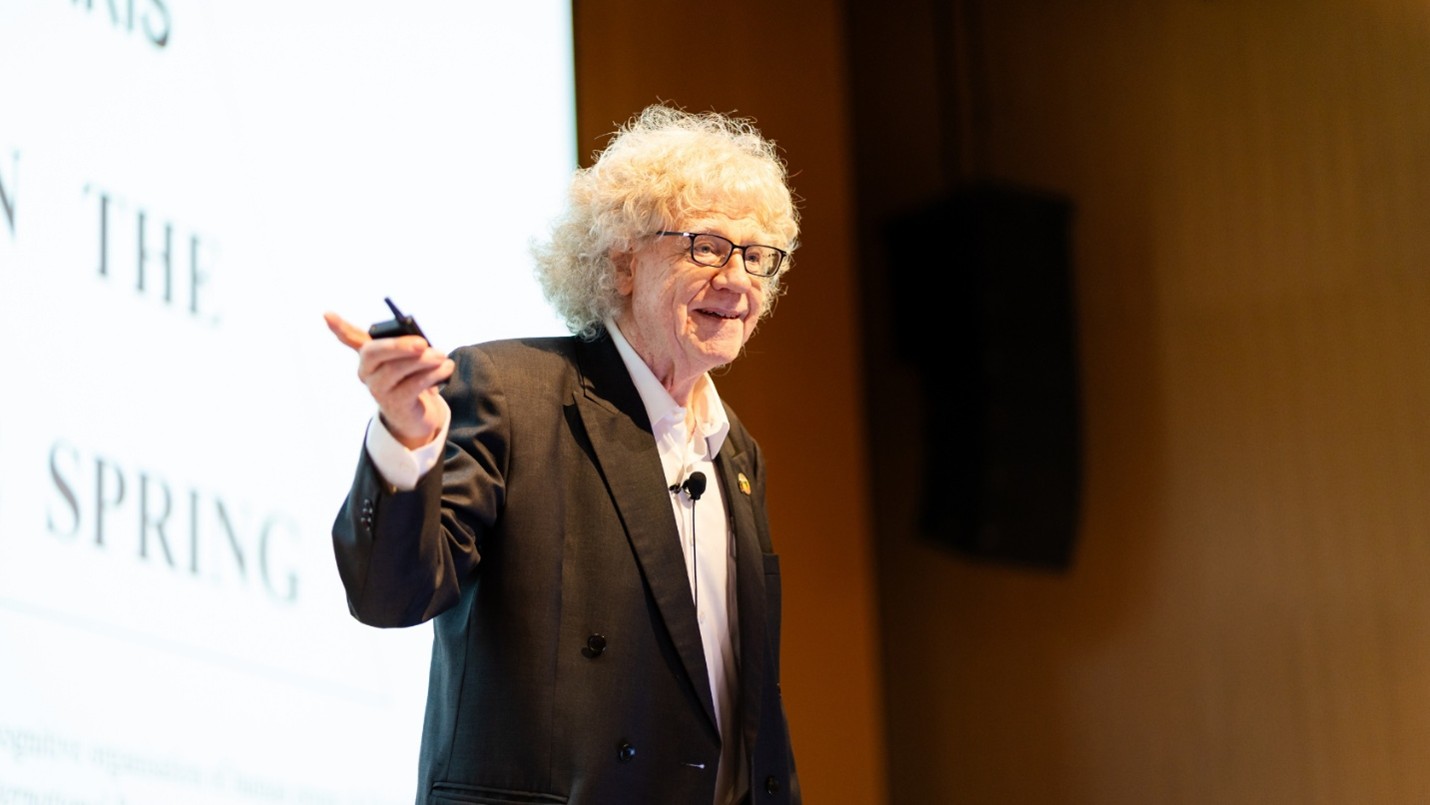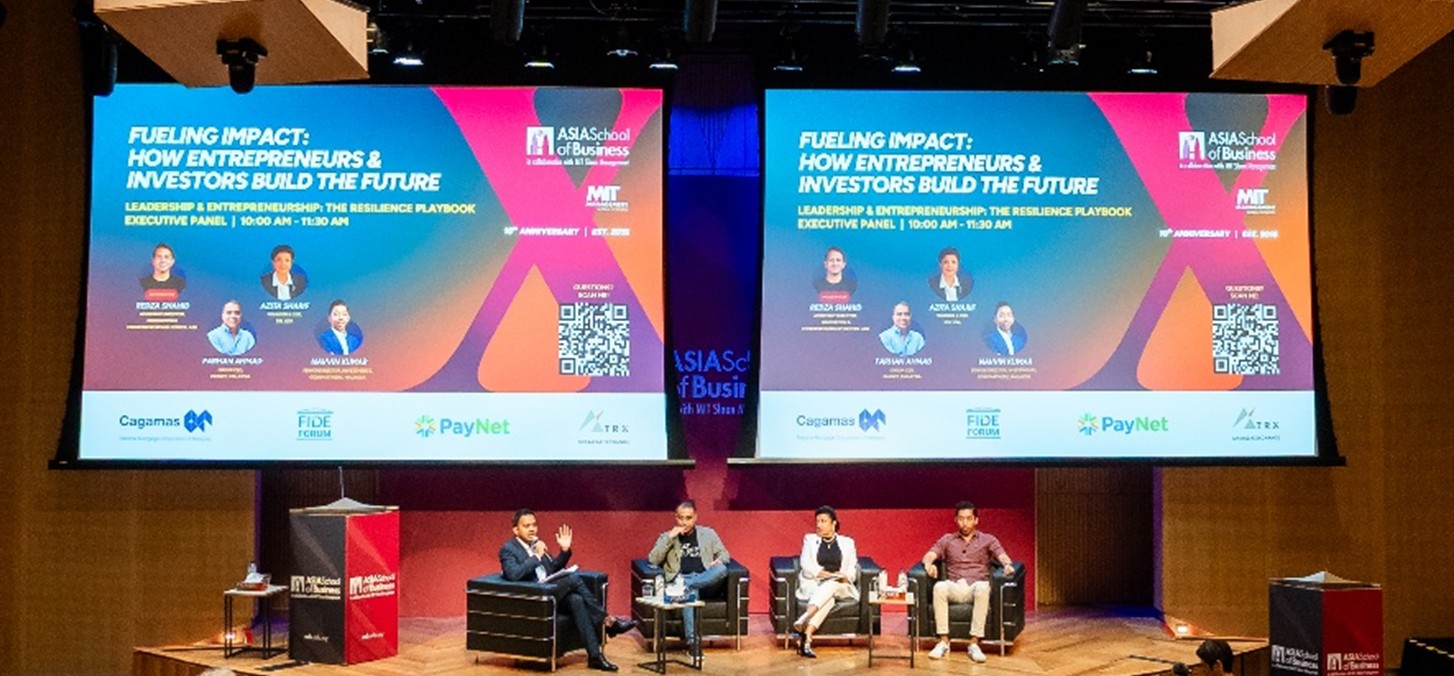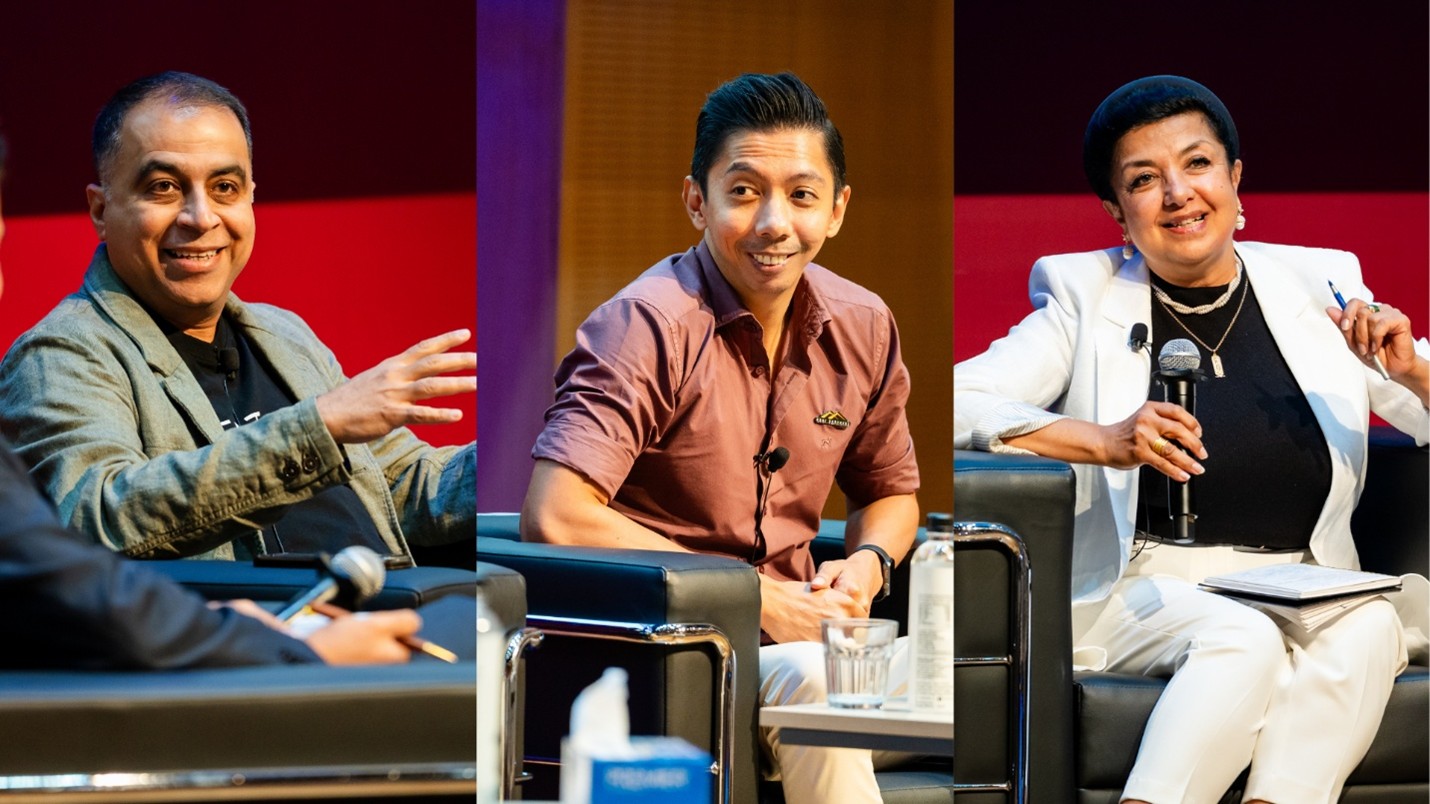Insights on Learning from Errors and Building Ventures That Shape Tomorrow
It is not a contradiction, but a condition: Successful entrepreneurs have one thing in common: failure. Behind every thriving venture are countless mishaps, false starts, setbacks and lessons. An alchemy that shaped sturdy leaders. The spirit of entrepreneurship is not in avoiding mistakes, but the resilience to bounce back from setbacks and turn them into breakthroughs. Failure is fuel for success, if we are prepared to listen to it; change from it; and persevere.

Photo: Professor Michael Frese
As Professor Michael Frese, Distinguished Professor of Management and Entrepreneurship at the Asia School of Business, reminds us, failure isn’t something to fear, it’s something to value. “Every time you make an error, you should cherish the fact that you feel bad,” he shared. “Even though you don’t like it, it gives you the possibility to think anew and be creative. Creativity and innovation are partly related to errors.” For every one successful product in the market, there are nearly 5,000 ideas that didn’t make it — proof that progress often requires thousands of small failures before a single breakthrough.

From the left: Redza Shahid moderated session with Farhan Ahmad, Azita Sharif, Navvin Kumar.
Farhan Ahmad, former Group CEO of PayNet Malaysia (Malaysia’s national payment infrastructure); Azita Sharif, Founder & CEO of DSI USA (a biotech company); Navvin Kumar, Senior Director of Investments, at Gobi Partners Malaysia (a venture capital firm), all shared how entrepreneurs turn setbacks into stepping stones, transform mission into momentum, navigate uncertainty with courage, and redefine what it truly means to be resilient in today’s dynamic entrepreneurial landscape.
Farhan shared that leadership is a journey, not a single turning point. “It was a series of failing, falling, and getting up,” he said, emphasizing humility and “learning that I know nothing” when he first came to Malaysia. His story underscored that true leadership begins with unlearning and the willingness to keep learning. Farhan highlighted “conviction and courage” as his two guiding principles. “Conviction means you believe deeply; courage means you follow through even when everyone says you’re wrong.” Azita echoed this, noting that “we are children of our past.” She recalled an experience in graduate school when a professor told her, “You’re creative, but you don’t listen enough.” That moment transformed how she led, by listening first and leading with empathy. Navvin built on the theme of humility, saying that his growth accelerated when he gave himself “room to fail but also the opportunity to succeed.” For him, listening and reflection are what turn experience into progress.
On purpose-driven entrepreneurship, Azita shared that in being described as the “Erin Brockovich of food safety,” passion and emotional connection drove her work. “Entrepreneurship is 24/7; if it’s not emotionally rewarding, it wears out quickly,” she said.
From an investor’s perspective, Navvin cautioned founders against “chasing keywords” — creating flashy ideas that sound impressive but don’t address real problems. He said that investors look for ventures grounded in genuine market needs, not buzzwords. “Solve problems that people value and are willing to pay for,” he emphasized. He urged Malaysian entrepreneurs to think bigger, beyond local markets, while using local advantages of cost and speed to compete regionally and globally.

From the left: Farhan Ahmad, Navvin Kumar, Azita Sharif.
Collaboration within the entrepreneurial ecosystem is critical where Farhan shared that the Fintech Hub was born from the need to bridge gaps between investors and founders, and to create a safe space where failures can be shared openly. “In Malaysia, people pretend they’re succeeding even when they’re failing. We need community, not isolation,” he said.
Azita added that lasting relationships with customers and investors are built on trust and anticipation. She emphasized that the same mindset applies when building relationships with both. “You want to give customers a reason not to switch. Deliver on your promises and exceed them,” she said. While speed is valuable, she stressed that quality should never be compromised. Trust, she added, is built when you consistently anticipate needs before they are expressed. “Always assume your customers are smarter than you. Evolve with them, stay ahead of the market, and offer solutions before they even describe the problem.”
Echoing the spirit of resilience, Navvin reminded the audience that courage is just as vital — both for founders and investors. “I look for grit. People who can transcend adversity, who aren’t afraid to fail, but choose to learn from it,” he said, highlighting that true leadership shines through in how one responds when things get difficult.
Resilience isn’t about avoiding mistakes, but about learning from them. Every setback carries a lesson, and that growth comes from facing challenges head-on.
In line with these themes, ASBhive continues to play a pivotal role in shaping Malaysia’s startup and innovation ecosystem. Through our incubators, accelerators, community programs, and partnerships with industry leaders, ASBhive empowers founders at every stage—from early ideation to investment readiness. Our mission is to build a vibrant and supportive environment where entrepreneurs can experiment boldly, learn from failure, and scale with confidence. By bridging startups, investors, corporates, and ecosystem partners, ASBhive remains committed to nurturing the next wave of impact-driven innovators in Malaysia and across the region.




